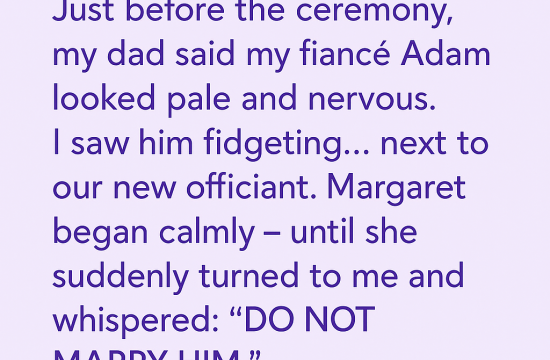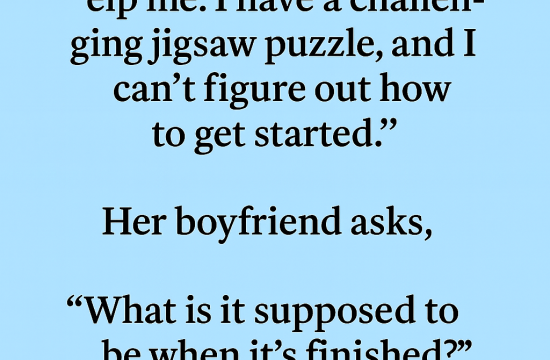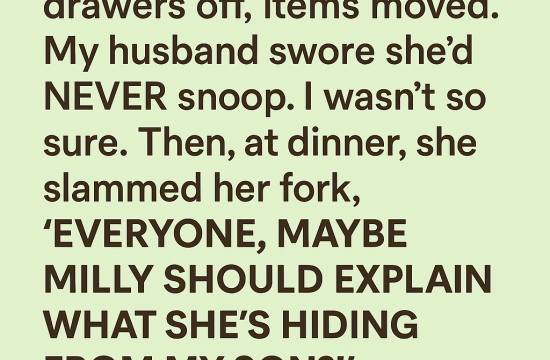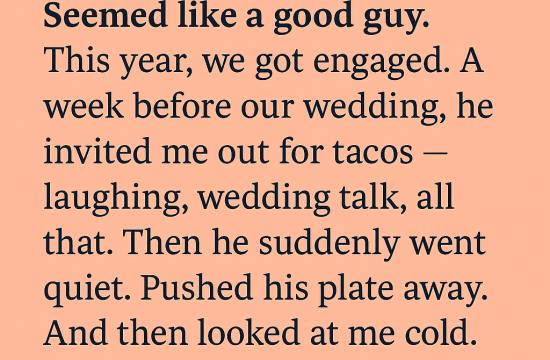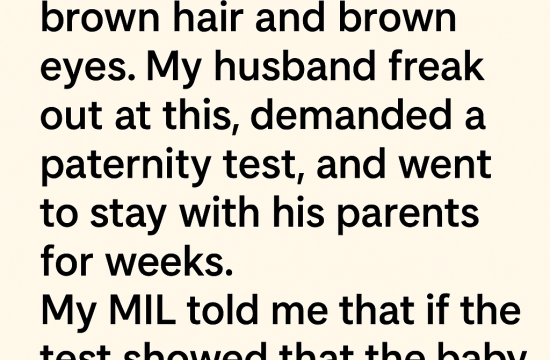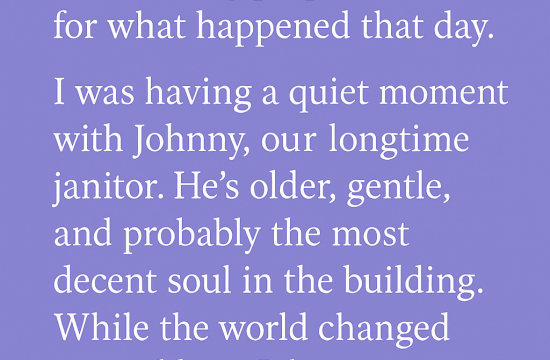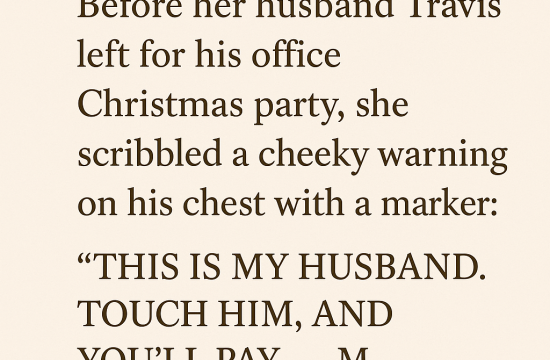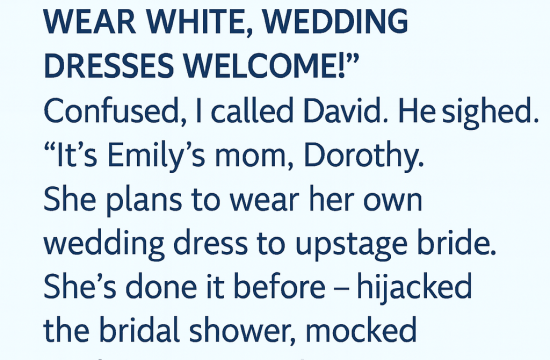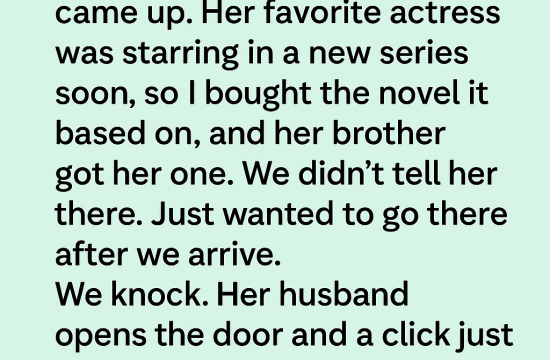It started years ago, with a neighborhood potluck and a casserole dish.
I had spent hours making my grandmother’s spinach artichoke casserole in my favorite ceramic dish—a vintage treasure I’d found at a thrift store years ago. Our neighbor Sue couldn’t stop raving about it.
“This is incredible!” she said for the third time, scraping the last of it from the corner. “You have to give me the recipe!”
When the night wound down and people began packing up leftovers, Jake—my well-meaning but perpetually thoughtless husband—handed her the entire dish.
Not just the food.
The dish.
“She loved it!” he said proudly, as if he’d personally just brokered world peace. “We can get another one.”
“No, we can’t,” I whispered, stunned. “It was vintage. They don’t make them anymore.”
He winced. “I didn’t realize. I’m sorry.”
“Just… don’t give away my stuff without asking me, okay?”
He nodded. “You’re right. It won’t happen again.”
I believed him. That was mistake number one.
Eight years into marriage, I understand Jake better. He is kind, generous, softhearted—but also the kind of man who sees other people’s belongings as excellent gifts to solve awkward social moments. To him, everything is replaceable. To me, some things are not.
And I admire his generosity—I really do. I grew up poor; I know how hard it is to let things go. But I also know this: some objects aren’t luxuries. They’re symbols of the battles you fought to earn them.
Which is why, for a full year, I saved for my dream: a Louis Vuitton purse.
To someone else, it might have been “just a bag.”
To me, it was a milestone.
Every freelance gig I took at midnight.
Every takeout meal I skipped.
Every secondhand sweater I wore while telling myself, Someday, I’ll get there.
The day I bought it, I sat in my car in the boutique parking lot and cried.
I didn’t flaunt it. I didn’t parade it around. I kept it safe, in its dust bag, and used it only for special occasions. Jake knew all of this. He’d seen me work, sacrifice, save. He’d wrapped his arms around me the night I bought it and whispered, “I’m proud of you.”
All of that made what happened next feel like betrayal wrapped in politeness.
Three months later, Jake’s mother came over for Sunday lunch. She’s not cruel, but warmth from her is as rare as a solar eclipse. While I grabbed drinks from the kitchen, she spotted the purse on the console table where I’d set it after brunch with my best friend.
When I returned to the living room—the bag was gone.
“Babe, have you seen my purse?” I asked, scanning the room.
Jake smiled like he’d done something heroic. “Oh, Mom loved it, so I told her she could have it.”
I stared at him. “You… what?”
“She loved it, and you hardly use it,” he repeated, as if logic lived in those words.
Moments later, his mother reappeared with my purse hanging off her arm like it had always belonged to her.
“I left everything from the purse in the bathroom, dear,” she said sweetly. “It’s such beautiful craftsmanship. I’ve always wanted one.”
My heartbeat roared in my ears. I didn’t scream. I didn’t snatch it back. I simply… waited.
When she left, I turned to Jake.
“What the hell were you thinking? You knew how much that purse meant to me.”
He blinked, confused. “But you hardly use it. It’s just a bag. You make good money—you can buy another.”
“No, Jake. That one was special.”
“She’s my mom,” he insisted. “She does so much for us. I can’t believe you’re choosing a bag over family.”
And there it was.
My breaking point.
Not because of the purse—because of the message behind it.
I had let so many smaller moments slide. But not this.
This time, Jake needed to feel what he had done.
So I thought of the one thing he cherished above everything else: his Titleist golf clubs.
He’d saved his work bonus for them.
Polished them weekly.
Researched them for months like he was writing a dissertation.
They weren’t just hobbies—they were trophies.
One week later, our plumber Travis came over to fix a leak. While working, he sighed, “I’ve always wanted to golf. My dad promised to teach me, but… well. Cancer got him before he could.”
I smiled gently. “You should see my husband’s clubs.”
Minutes later, Travis was in the garage, holding them reverently.
“You can have them if you want,” I said casually.
The next morning, Jake burst into the kitchen, wild-eyed. “WHERE ARE MY CLUBS?!”
I sipped my coffee. “Oh. Travis loved them. You weren’t using them, and he really needed a set. So I gave them to him.”
His face drained of color.
“You WHAT?! Those clubs are irreplaceable! You had no right—”
I leaned forward. “Exactly. Just like you had no right to give away my purse.”
The silence between us vibrated.
“That’s… that’s not the same,” he whispered.
“Isn’t it?” I asked. “Travis does so much for us. I can’t believe you’re choosing golf clubs over helping people.”
He opened his mouth, then closed it.
Later, he called Travis, who laughed and told him the truth—the clubs were still in the garage, hidden safely behind boxes. I hadn’t given them away. I just let him feel the sting.
Jake didn’t talk to me for two days. But when he finally did, his voice was different. Quiet. Careful.
“I didn’t get it,” he admitted, eyes lowered. “I do now.”
That night, we sat at the kitchen table and actually talked—really talked—for the first time in years. About respect. About boundaries. About emotional value. About how dismissing someone’s attachment to something can feel like dismissing them.
“It was never about the purse,” I said. “It was about the way you treated my feelings like they were optional.”
He swallowed hard. “I promise… no more giving away your things. Ever. I’ll prove it.”
“I’ve heard that before,” I reminded him softly.
But something in his expression had shifted—an understanding I’d never seen in him before.
A few days later, Jake’s mom texted:
Thanks again for the lovely gift!
I replied:
You’re welcome. Let’s do lunch soon—I’ll bring a real gift. One that comes with a receipt.
Some lessons can’t be taught through arguments or lectures.
Sometimes, the only way to make someone understand the weight of what they’ve done
is to let them carry it themselves.


